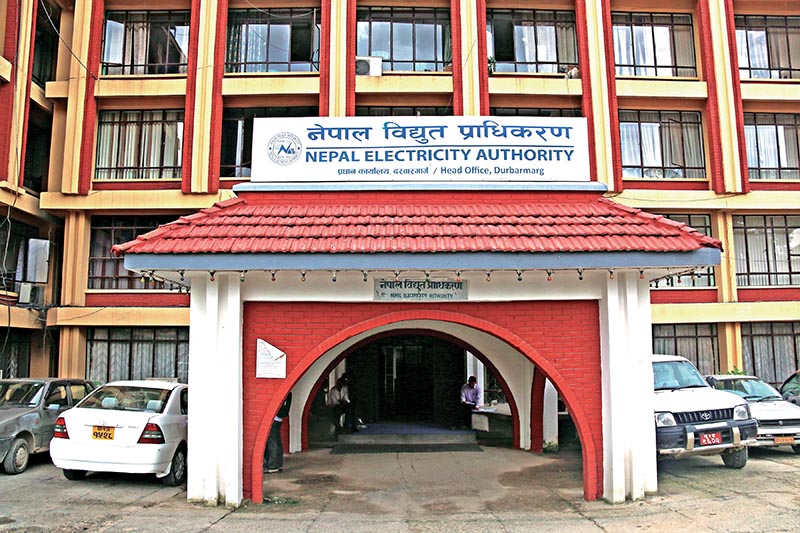Electricity regulatory commission introduces tariff guidelines
Kathmandu, November 17
Nepal Electricity Regulatory Commission (NERC) has introduced the ‘Electricity Customer Tariff Determination Guidelines’ today, aiming to manage electricity generation, transmission, distribution and trade to balance the demand and supply of electricity for customers.
To determine the electricity tariff, NERC had previously identified some key factors that play a crucial role to determine the tariff.
Dilli Bahadur Singh, chairperson of NERC, said the new guidelines will play a vital role to determine the electricity tariff for all kinds of consumers in a scientific manner.
As per the guidelines, it will protect customers’ rights and assure quality electricity. It also speaks of professionalisation of the electricity distribution company and raising its effectiveness. The new guidelines also state about improvements in distribution system and building a mechanism to strengthen distribution company’s resources for future risks.
Moreover, guidelines also have a provision of ensuring respectable rate of returns for the distribution companies, among others. The guidelines have stated that NERC will determine overall investment in projects, including power purchase agreement with independent power producers, yearly electricity sales and also assess income and expense statement. The commission will also determine expenses on distribution and transmission lines, interest rate and payments, depreciation, regulatory fee and employee expenses. NERC will also determine expected annual income of distribution company.
As per the guidelines, based on the above mentioned factors, the electricity tariff for customers will be determined. This has opened the doors for Nepal Electricity Authority (NEA) to now introduce new electricity tariff for its customers. According to Singh, NEA had proposed to NERC to raise electricity tariff rate by 15 per cent on average for all types of customers except for dedicated feeder and trunk lines but no decision has been taken yet on it.
As per the guidelines, before determining electricity tariff, any distribution company will have to submit the related
documents to NERC along with a Rs 25,000 fee and the commission will finalise the electricity tariff within seven days from the application date.
At present, guidelines can only be applied to NEA as it is the country’s sole power utility. However, in the future if any new power distribution company is established, then it will have to follow the guidelines.
A few weeks ago, NEA had decided to reduce the tariff rates for dedicated feeder and trunk line users, that is, industries and hospitals. As per NEA’s decision, from now onwards dedicated feeder and trunk line users will be charged only 15 per cent more than the tariff paid by general consumers. However, the revised tariff will be implemented only if the NERC approves NEA’s proposal.
At present, NEA has been charging minimum of Rs 4.20 per unit to maximum of Rs 19 per unit from customers. As per the new guidelines, power trading companies will not be allowed to fix electricity tariff more than once a year.






